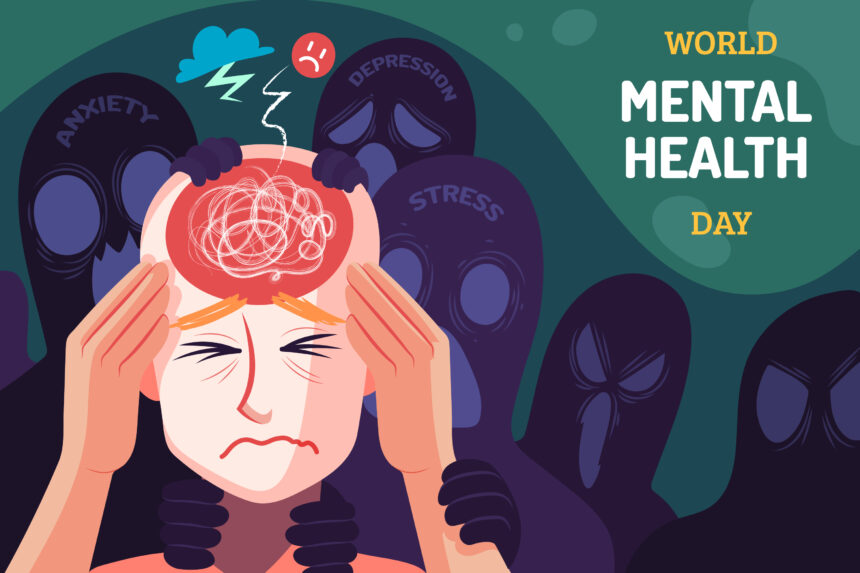Mental health and substance abuse are two interconnected issues that have a profound impact on individuals and communities worldwide. In South Africa, the link between mental health conditions and substance abuse is particularly significant, with both problems exacerbating each other. This article explores the complex relationship between mental health and substance abuse in South Africa, the factors contributing to this connection, and the importance of integrated approaches to address these challenges.
The Co-Occurrence of Mental Health and Substance Abuse
Mental health conditions and substance abuse often co-occur, creating a cycle that is difficult to break without appropriate intervention. Individuals experiencing mental health disorders may turn to substance abuse as a way to self-medicate or alleviate distressing symptoms. Substance abuse, in turn, can lead to the development of mental health disorders or worsen existing ones. This bidirectional relationship between mental health and substance abuse creates a challenging situation for those affected, often resulting in poorer outcomes for both conditions.
Prevalence and Factors Contributing to the Link
In South Africa, the prevalence of mental health disorders and substance abuse is alarmingly high. The historical context of apartheid, socioeconomic disparities, and ongoing challenges such as poverty, unemployment, and violence contribute to the vulnerability of individuals to both mental health conditions and substance abuse. The impact of intergenerational trauma and the enduring effects of discrimination further compound these issues.
Factors contributing to the link between mental health and substance abuse in South Africa include:
- Self-Medication: Individuals with undiagnosed or untreated mental health conditions may turn to substance abuse as a form of self-medication. Alcohol and drugs can temporarily alleviate symptoms of anxiety, depression, or other mental health disorders. However, this coping mechanism is ineffective in the long term and often leads to a vicious cycle of dependence and worsening mental health symptoms.
- Trauma and PTSD: South Africa has a high prevalence of traumatic experiences, including violence, crime, and interpersonal conflicts. Trauma, particularly post-traumatic stress disorder (PTSD), is closely linked to substance abuse as individuals may use drugs or alcohol to cope with distressing memories and emotions associated with their traumatic experiences.
- Dual Diagnosis: Dual diagnosis refers to the presence of both a mental health disorder and substance use disorder simultaneously. It is prevalent in South Africa, and individuals with dual diagnosis face unique challenges in accessing appropriate treatment. The complexity of treating co-occurring disorders requires integrated approaches that address both mental health and substance abuse simultaneously.
Integrated Approaches to Treatment and Prevention
To effectively address the link between mental health and substance abuse in South Africa, integrated approaches that consider both conditions as interconnected issues are necessary. Some key strategies include:
- Screening and Assessment: Early identification of mental health disorders and substance abuse is crucial. Implementing routine screening and assessment in healthcare settings can help identify individuals at risk and provide timely interventions. It is essential to train healthcare professionals to recognize the signs and symptoms of both mental health disorders and substance abuse.
- Integrated Treatment: Treating mental health and substance abuse as separate issues often leads to inadequate care and limited effectiveness. Integrated treatment models that simultaneously address mental health disorders and substance abuse have shown promising outcomes. These models involve collaborative efforts between mental health professionals and addiction specialists to provide comprehensive care that targets both conditions.
- Psychoeducation and Skill Building: Providing psychoeducation about the relationship between mental health and substance abuse is essential. Educating individuals, families, and communities about the risks and consequences of substance abuse and its impact on mental health can promote prevention and early intervention. Skill-building programs that focus on stress management, coping strategies, and emotional regulation can also be beneficial.
- Supportive Therapeutic Environments: Creating supportive environments that foster recovery is crucial. Peer support groups, community-based interventions, and aftercare programs play a significant role in providing ongoing support and preventing relapse. These initiatives help individuals develop social connections, build resilience, and reinforce positive coping mechanisms.
- Policy and Legislative Reforms: Addressing the link between mental health and substance abuse requires comprehensive policy and legislative reforms. This includes allocating adequate resources for mental health and addiction services, developing evidence-based prevention programs, and implementing regulations to control the availability and marketing of substances.
Conclusion
The link between mental health and substance abuse in South Africa is a complex and challenging issue. It requires a holistic and integrated approach that recognizes the interplay between these conditions. By implementing early screening, integrated treatment models, psychoeducation, supportive environments, and policy reforms, South Africa can make significant strides in addressing this interconnected problem. By breaking the cycle of mental health and substance abuse, individuals can achieve better overall well-being and contribute to the development of healthier communities.










